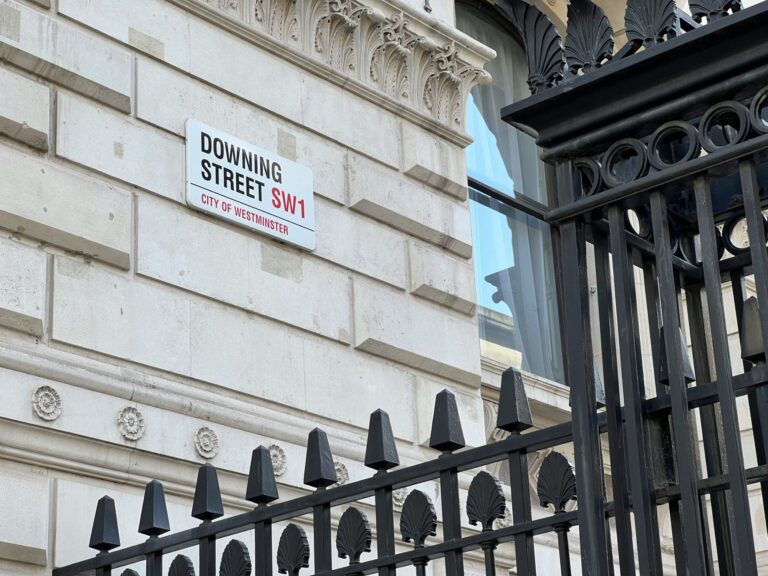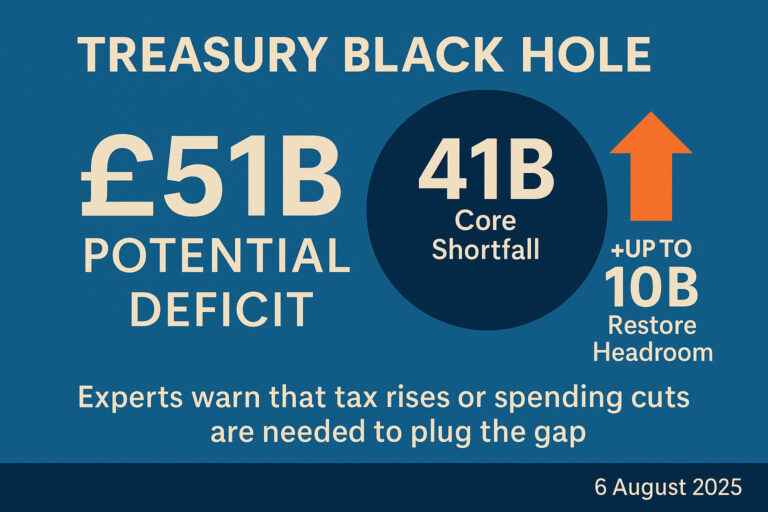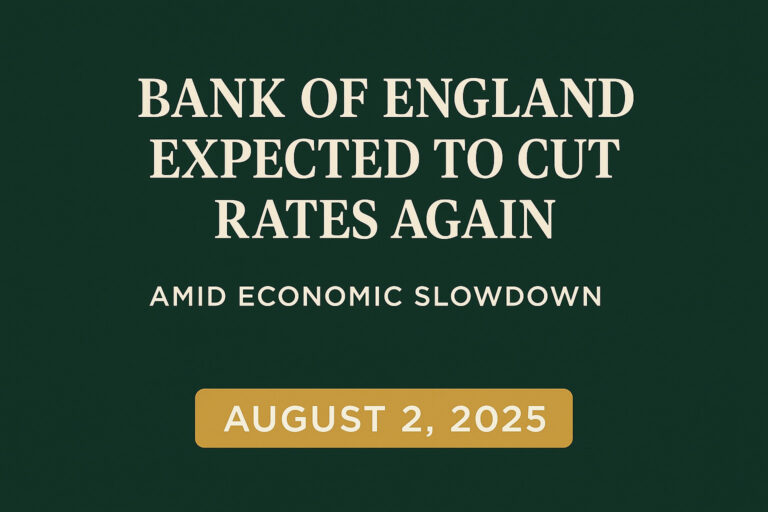UK Inflation Surge Forces Rethink on Bank of England Rate Cuts
By Fidelis News | 18 July 2025 | UK News – Economy
Wall Street’s biggest banks have pulled back from expectations of a September interest rate cut by the Bank of England, following the release of stronger-than-expected UK inflation data this week.
The decision comes amid persistent consumer price inflation (CPI) and a labour market that continues to defy recession fears, creating renewed uncertainty over the BoE’s monetary policy trajectory.
🔍 What’s Behind the Shift?
According to June data, the UK inflation rate rose to 3.6%, up from 3.3% in May—its highest level since January 2024. While this remains below the Bank’s 2% target, the pace of deceleration has slowed considerably.
This has prompted top financial institutions—Bank of America, Morgan Stanley, Goldman Sachs, and Citigroup—to revise their forecasts. These banks now expect two BoE rate cuts this year, most likely in August and November, rather than the three previously anticipated. Notably, expectations of a September cut have been dropped entirely.
📈 The Market Reaction
Markets had largely priced in a dovish turn, but the data triggered a sharp correction. Gilt yields rose in response, and futures markets now place the probability of an August rate cut at around 77%, down from over 90% earlier in the month.
The UK’s labour market remains resilient. Though job vacancies have dropped to their lowest level since 2021—now around 727,000—unemployment remains steady, and average wage growth has held at approximately 5% annually.
🗣️ Policy Dilemma
Speaking after the release, Catherine Mann, a member of the BoE’s Monetary Policy Committee (MPC), warned that inflationary pressures are “not abating quickly enough,” and argued for a more cautious approach.
While the BoE’s current base rate remains at 4.25%, expectations that it will fall closer to 3.5% by year-end are now under scrutiny.
The central bank faces a difficult balancing act—easing rates to support faltering growth without reigniting price pressures.
🏠 Real-World Implications
For households, especially mortgage holders and renters, this means prolonged exposure to higher borrowing costs. Many fixed-rate deals will come up for renewal in the next six months, potentially leading to a ‘mortgage cliff’ for thousands of families.
Small businesses that rely on short-term credit are also feeling the pinch, with rising interest costs limiting investment.
On the public finance side, higher interest rates increase the cost of servicing government debt, which could reduce fiscal space for new spending initiatives or tax cuts.
🧮 Broader Economic Forecast
The UK economy has narrowly avoided recession so far this year. GDP grew 0.2% in Q1, and the latest purchasing managers’ indexes suggest weak but positive momentum. However, real wage growth remains limited, and consumer confidence remains fragile.
The next major data points—July CPI figures and the August BoE meeting—will be critical in determining whether policymakers feel confident enough to start loosening monetary policy.
🔮 Looking Ahead
Next BoE policy meeting: 7 August 2025
Inflation data: July CPI to be released on 14 August
Autumn Statement: Chancellor’s fiscal plans expected in October
A surprise in either direction—higher inflation or an unexpected dip in economic output—could significantly shift market expectations once again.
📢 Voices from the Sector
“We’re not out of the woods yet,” said Paul Dales, UK economist at Capital Economics. “The BoE will want to see more consistent signs that inflation is headed sustainably back to target before making any bold moves.”
Laura Cooper, senior economist at BlackRock, added: “Expectations have moved too fast. The BoE will be watching both inflation and wage pressures closely—especially in the services sector.”





